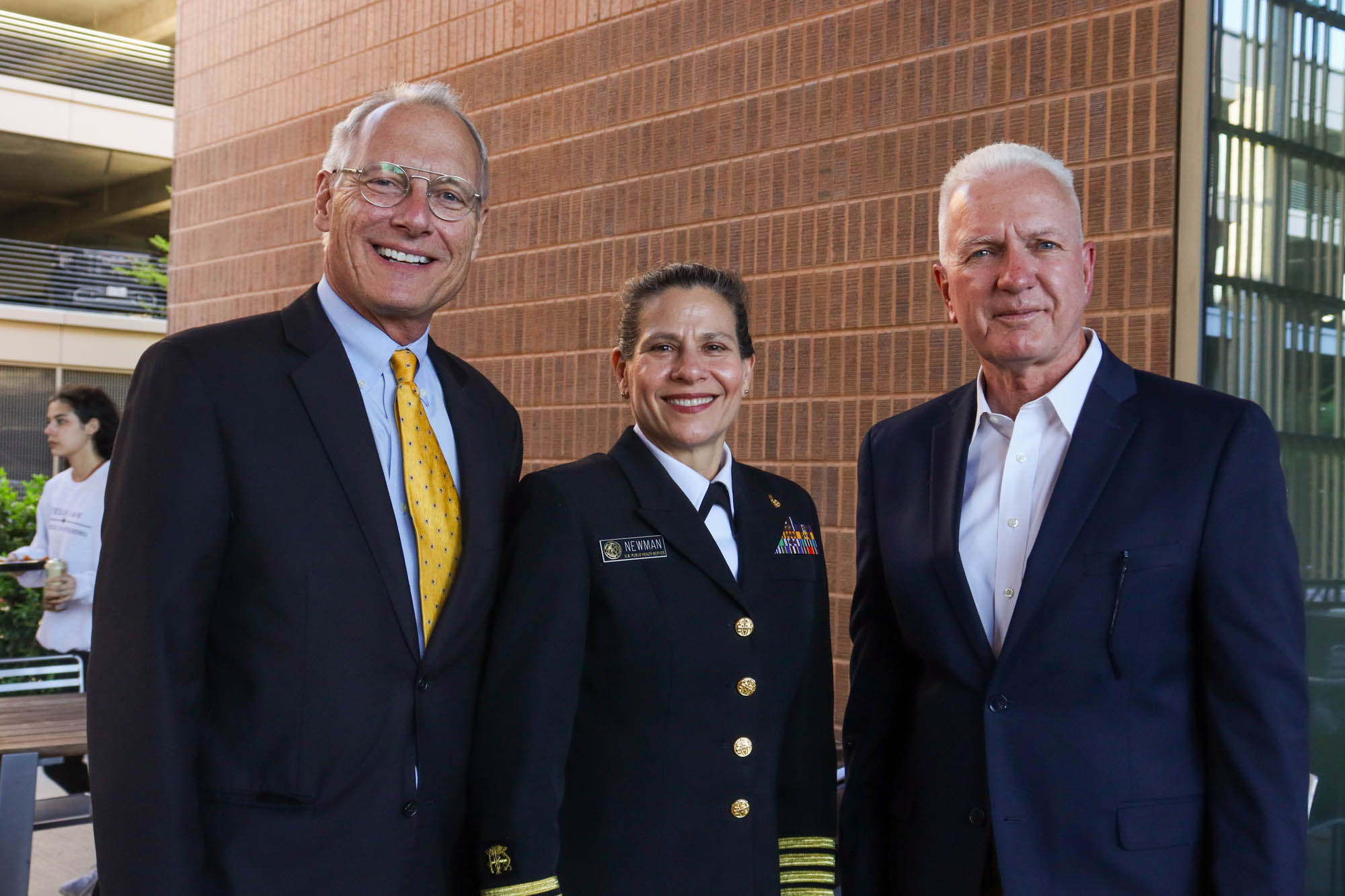At Texas A&M, it is not uncommon to hear about Aggies entering military service in branches like the U.S. Army or Navy. However, many students may be unfamiliar with the Public Health Service, one of the eight uniformed branches of the U.S. government that has safeguarded citizens from natural disasters, pandemics, and global health threats for more than two centuries.
During a special event on Wednesday, April 3, the School of Public Health at A&M organized a screening of “Invisible Corps,” a documentary created by Emmy Award-winning filmmaker Chris Schueler. This documentary sheds light on the significant contributions of the U.S. Commissioned Corps of the Public Health Service (PHS). The screening was attended by Admiral Brett Giroir, MD, Capt. Sara Newman of the PHS, and Schueler, who engaged with the audience, providing insights into the documentary and life within the Corps.
Newman emphasized the diverse composition of the PHS, comprising individuals with backgrounds in engineering, public health, and social work.
“The PHS welcomes individuals with various professional qualifications,” Newman explained. “Individuals with degrees in fields such as engineering, medicine, dentistry, veterinary medicine, therapy, or social work are eligible to join.”
She highlighted the unique and rewarding nature of PHS roles, emphasizing the readiness required to respond promptly to public health emergencies worldwide. The Corps operates on a rotational on-call basis, with members prepared to deploy at short notice to address emergencies with public health implications, ranging from floods to disease outbreaks or humanitarian crises involving vulnerable populations.
In addition to their duties within government agencies like the FDA, National Institutes of Health, or National Park Service, PHS officers must be prepared to engage in challenging and hazardous situations beyond their routine responsibilities.
“We have the privilege to serve our nation in various capacities,” Newman stated. “During events such as the Ebola outbreak in Africa, PHS officers were at the forefront, often assuming substantial risks to fulfill their duties.”
Director Chris Schueler expressed admiration for the dedication of PHS officers, acknowledging the significant impact of their often overlooked efforts on the lives of countless individuals.
“As a documentarian focusing on social issues, my goal is to highlight stories that make a difference,” Schueler remarked. “The PHS functions as the nation’s health army, a unique entity unparalleled globally, yet its contributions often go unnoticed. By raising awareness through this film, we aim to illuminate the vital role played by the PHS in safeguarding public health.”
Admiral Brett Giroir, who previously oversaw thousands of PHS Corps members during his tenure as assistant secretary of health, emphasized the hands-on nature of PHS work, bridging policy-making with field operations.
“Being part of the Corps enabled me to transition seamlessly from policymaking to frontline action,” Giroir shared. “Whether responding to health crises at the border or advancing biomedical research, the PHS remains steadfast in its commitment to public health, often operating behind the scenes with significant impact.”
He underscored the round-the-clock dedication of PHS officers, who work tirelessly, often in challenging conditions, to address emergencies and drive advancements in health policy and research.
Students attending the screening expressed interest in exploring career opportunities within the PHS, recognizing the institution’s rich history and impactful contributions to public health.
Newman encouraged individuals passionate about serving their country and promoting public health to consider joining the PHS, an esteemed institution with a legacy of addressing critical health challenges throughout history.
